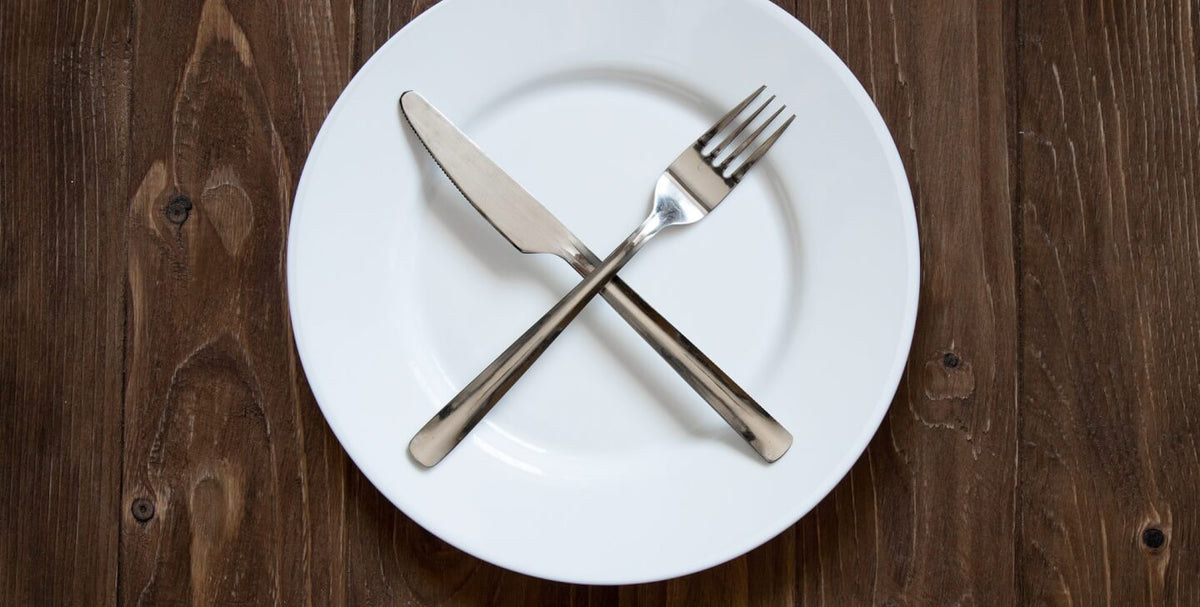4 Nutrition Rules You Should Break on Race Day

As a dietitian, I have the ability to help clients reach their health and fitness goals through appropriate nutrition strategies. Usually, I’m thinking long-term, with foods that provide adequate fiber, protein, and complex carbs. I want your digestive system to work hard to extract the earth’s best nutrients.
But on race day, it’s a different story. Most of my OCR clients understand how to eat on a daily basis, but they have a hard time breaking the rules when it comes time to compete. The truth is, some of world’s best foods could give you digestive problems or cramps on race day. Plus they don’t provide the high-octane energy you need for a strong finish. So to perform your best, you must ditch the focus on nutrition (say what?!) for a focus on fuel. They’re two completely different animals. So with that, here are four strategies to help you hit your next Spartan PR.
But remember—you didn’t hear them from me.
Race-Day Diet Hack #1: Stop eating vegetables
Day to day, you should be pounding plant matter. The phytonutrients and fiber help maintain regularity, aid in cancer prevention, and provide a huge bulk of your daily vitamins and minerals. But they also linger in your gut for a long time, weighing you down when you need to feel light on your feet.
By eliminating vegetable intake during the 24 hours prior to your race, you will allow the body to fully process these high-fiber friends and send them on their way, leaving your intestinal tract free and clear. This approach helps reduce race day stomach upset that could hinder your speed.
Race-Day Diet Hack #2: Ditch the whole grains
Again, you should be eating as many high-fiber foods as possible every day. But skip them entirely for the 24 hours preceding a race. As with vegetables, whole grains—those with the tough bran still intact—will break down slowly and take time for the body to process. Additionally, some of that fiber will remain in the intestinal tract, possibly causing discomfort on race day.
So leading up to a competition, swap out whole grains for—dare I say it?—white bread or pasta. These low-fiber, easily digested sources will assist in topping off your muscles’ glycogen stores while moving swiftly through your GI tract. But remember: Once the race is over, it’s back to whole grains.
Looking for more nutrition? Download great smoothie recipes in our Spartan Smoothie Guide
Race-Day Diet Hack #3: Shake on the salt
Generally, you should keep your sodium intake below the government’s recommendation of 2,300 milligrams per day. But when you’re training for or competing in an OCR race, an extra hit of salt and other electrolytes can keep your muscles operating smoothly.
The best time to think about cramps is not during the race, but in the days leading up to it—especially if you’ve been hydrating properly. Extra water during the week leading up to the race can throw off your electrolyte balance, which can impair the function of your muscles, heart, and nerves.
In general, Spartans should aim to take in half of their body weight in ounces of fluid (primarily water) per day. So a 150-pound person should have 75 ounces. During the week leading up to the race, replace a percentage of your water intake with an electrolyte fluid source. A daily bottle of coconut water works for mild sweaters, while a more serious sweater may want something like Gatorade. Your most beneficial electrolyte source will provide not only sodium, but also potassium, magnesium, and calcium.
Race-Day Diet Hack #4: Cave to your cravings
Our bodies are brilliant. They are very aware of what they need at any given time and they are constantly on the lookout to make you aware of depletion. The above recommendations? They’re just guiding principles.
So listen to your cravings. Do you feel an urge to devour a bowl of ice cream? Your body may be sending you signals that your glucose levels are low. In the mood for savory? Perhaps your electrolyte balance is off or you haven’t eaten enough healthy fats.
Listen to your body and eat foods you enjoy that you know you digest well. Go into a race feeling satisfied and ready. That said, always remember the cardinal rule: Never try new approaches on race day. Stick with foods that you tested during training, and that you know won’t slow you down. Aroo!
Ready to give Spartan a try? Here’s everything you need to know to find your race.




